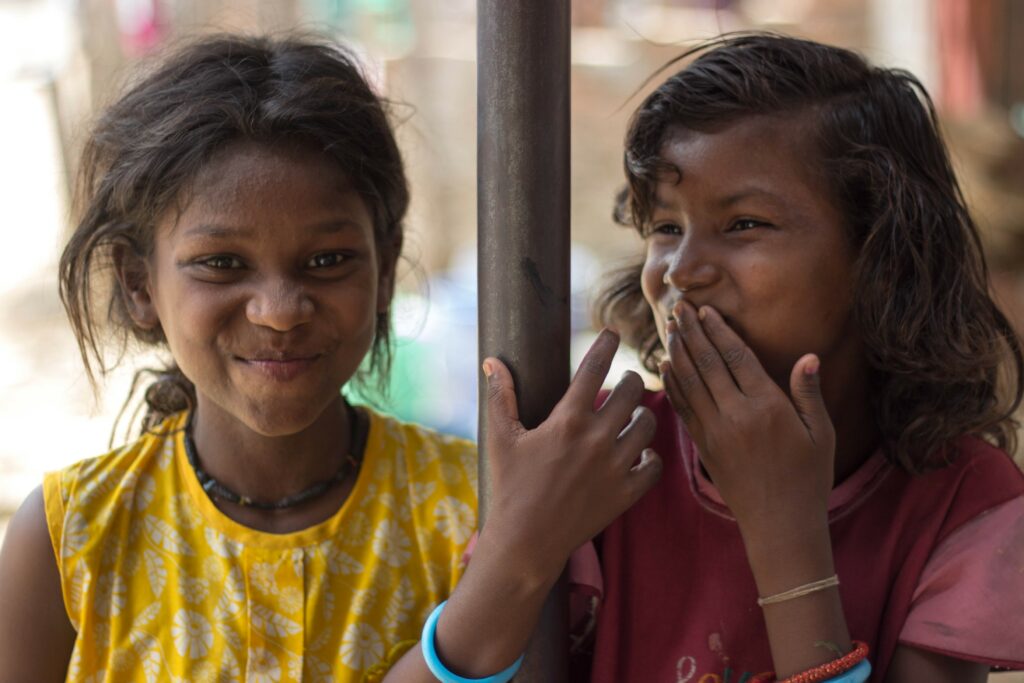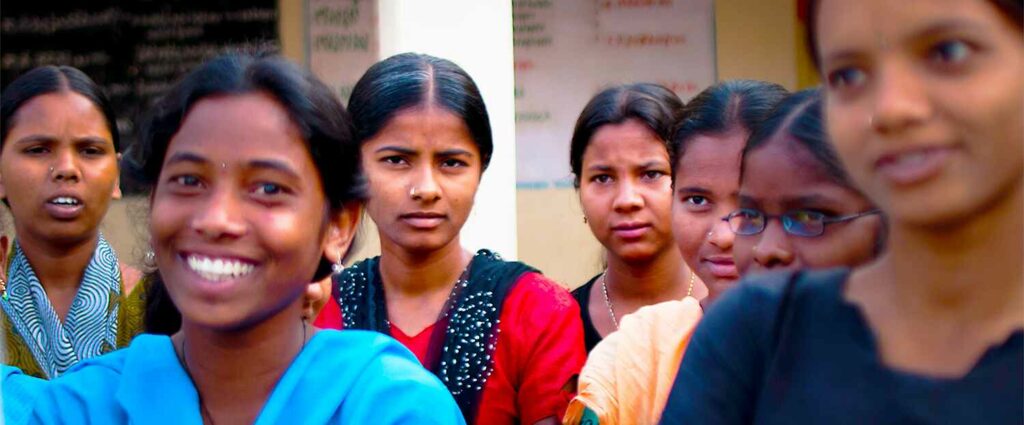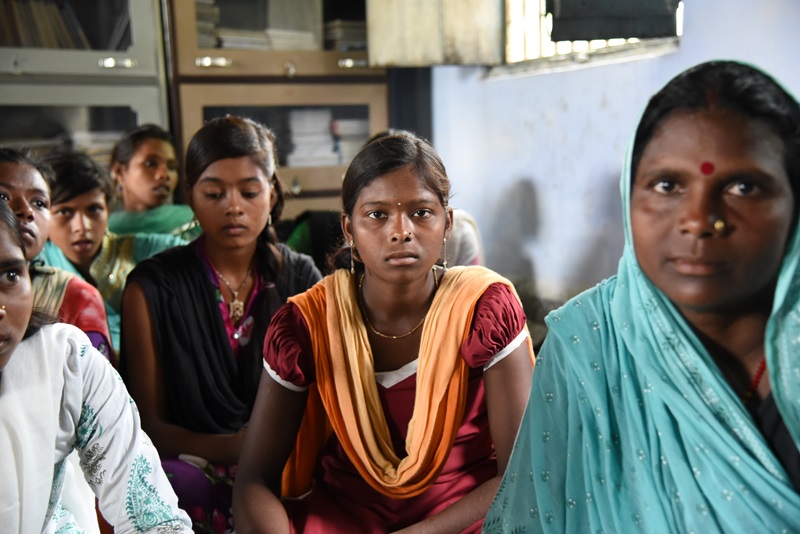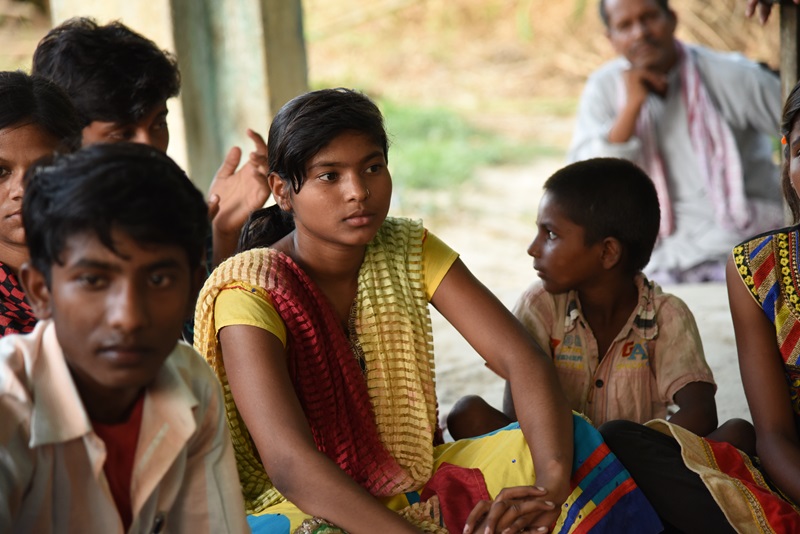
Period Shame: Impact of Period Shaming on Girls’ Mental Health
Summary/TL;DR on Period ShamingIn India, menstruation is encumbered by societal taboos, leading to feelings of shame and confusion among girls. T....
Read MoreMenstrual hygiene health education is more than just a biology lesson; it is a vital tool for empowerment and health. This post explores how breaking the silence around periods can transform lives:

Menstruation can be confusing and even a bit scary. Girls might feel embarrassed or uncomfortable talking about it. But it’s nothing to be ashamed of—it’s just a normal part of life. The more women understand menstrual hygiene, the better you’ll be able to care for yourself and stay healthy.
Here’s the thing: proper menstrual hygiene is essential. It’s not just about using the right products (like pads or tampons) – it’s also about understanding body, knowing how to manage periods, and keeping clean and comfortable. Continue reading as we discuss menstruation and the importance of proper menstrual hygiene education.
Understanding menstruation involves comprehending the biological process and addressing societal attitudes and myths. Menstruation is the cyclical shedding of the uterine lining (endometrium) through the vagina, which occurs in females of reproductive age if pregnancy does not occur. Hormones like oestrogen and progesterone regulate it. The menstrual cycle lasts 28 days but can vary from 23 to 35 days.
Menstruation is a natural bodily function, not an illness or a reason for shame or stigma. However, common myths, such as restrictions on activities or food intake during menstruation, persist and should be dispelled through education. It is essential to break these taboos and promote an understanding that menstruation is a normal process.
Also, from a health perspective, irregular or abnormal bleeding patterns, severe pain, or other concerning symptoms may indicate underlying health conditions and should be checked by a healthcare professional.
24% of girls miss one or more school days during menstruation. *(Source: British Medical Journal)
From an early age, girls learn to live with the pain and fear and seldom seek help when in physical or mental discomfort due to periods – thanks to the air of embarrassment surrounding the topic. The silence, exclusion, teasing and shaming affect the girls’ psychological and physical development and hinder their potential big time. The lack of access to basic hygiene facilities and awareness leads to increased dropouts.
Girls are often pushed into marriage at an early age once they drop out of school, leading to permanent loss of potential. To help our girls live freely and chase their dreams, we need to end period shame and have open conversations about menstruation. Let’s understand the importance of menstrual hygiene education in more detail:

Menstrual hygiene education is crucial in empowering individuals, particularly young girls and women, by providing them with accurate information about the natural biological process of menstruation. Understanding the physiological changes that occur during menstruation can help alleviate anxiety, confusion, and misconceptions surrounding this topic.
Educating individuals about menstrual health and hygiene practices equips them to make better decisions regarding their bodies and well-being. This knowledge empowers them to manage their menstrual cycles effectively, promoting confidence and self-assurance.
Proper menstrual hygiene education is vital for reducing health risks associated with poor menstrual management practices. Inadequate knowledge and lack of access to hygienic menstrual products can lead to infections, reproductive tract disorders, and other health complications.
By educating individuals about the importance of using clean and safe menstrual products, practising good hygiene during menstruation, and seeking medical attention when necessary, menstrual hygiene education plays a crucial role in preventing and mitigating these health risks.
Menstruation is often shrouded in taboos, myths, and stigma in many societies, leading to the marginalisation and discrimination of menstruating individuals. Menstrual hygiene education serves as a powerful tool to challenge these societal taboos and normalise conversations around menstruation.
Education can help break down the barriers of shame and secrecy surrounding menstrual health by promoting open and factual discussions. This, in turn, can foster a more inclusive and supportive environment for individuals to manage their menstrual cycles without fear or stigma.
Also Read: Equity in Education
Menstruation is a natural bodily function, but in many areas of India, it is still surrounded by silence and shame. This lack of open conversation and education has profound consequences, particularly for young girls. Menstrual hygiene health education is not just about biology; it's about empowerment, health, and equality. Teaching children about menstruation and encouraging good hygiene habits provides them with long-term benefits, including:
Educating children about menstrual hygiene encourages using clean menstrual products, which helps prevent infections and promotes better health. It also supports mental health by decreasing the stigma and anxiety associated with menstruation.
Proper menstrual hygiene health education enables children to manage menstruation confidently, leading to higher school attendance and improved academic performance. Without this education, many children miss school during menstruation due to discomfort or embarrassment.
A study involving 600 adolescent girls in Delhi found that 40% missed school during menstruation, and nearly 65% said that it affected their daily activities, leading them to miss classes and tests due to pain, anxiety, and fear of staining their uniforms (Source: National Library of Medicine, 2018).
When educated about menstrual hygiene, children are more likely to participate in social activities without fear of stigma. This education promotes confidence and social integration, allowing them to engage fully in community and school life.
Menstrual hygiene health education contributes to breaking the cycle of poverty by ensuring that children can manage menstruation effectively. It empowers children to continue their education uninterrupted, leading to better employment opportunities and economic independence in the future.
The lack of health education on menstrual hygiene and resources often leads to girls missing school, which can adversely affect their long-term educational and economic prospects.
Also Read: Right to Education Act
Promoting menstrual hygiene health education in rural India faces several significant challenges that hinder effective implementation and widespread adoption. Addressing these obstacles is essential to ensuring that all children, particularly girls, can manage menstruation safely and confidently.
In rural areas, there is often a shortage of resources and infrastructure to support health education on menstrual hygiene. Many schools lack proper sanitation facilities, making it difficult for children to manage menstruation hygienically.
Cultural taboos and social stigmas surrounding menstruation can hinder open discussions and education. These barriers prevent children from seeking information and support, leading to misinformation and poor menstrual hygiene practices.
A study found that only 42% of adolescent women in rural India exclusively used hygienic methods during menstruation, with substantial geographic disparities (Source: National Health of Medicine, 2022).
A lack of accurate information about menstruation leads to the spread of myths and misconceptions. This misinformation can result in harmful practices and health issues among children.
Menstrual hygiene health education plays an essential role in advancing gender equality, particularly in India, where cultural taboos and misinformation often surround menstruation. By promoting open communication and accurate information, such education empowers children to manage menstruation, promoting equality and respect among all genders.
Educating all children about menstrual hygiene helps reduce gender-based discrimination by normalising menstruation and promoting equality. This education promotes respect and understanding among all students, regardless of gender.
Initiatives like CRY India's "Let's Talk About It. Period" campaign aim to address taboos around menstruation and promote gender equality.
Educating children about menstrual hygiene equips them with the knowledge and skills to manage menstruation effectively. This empowerment leads to better child health, education, and social outcomes, contributing to a more equitable society.
NGOs like CRY India work to create awareness about menstrual health and hygiene among children and adolescent girl groups in schools across different regions.
Ensuring all children have access to health education on menstrual hygiene and products promotes health as a fundamental right. It supports children's well-being and enables them to participate fully in education and community life. Proper menstrual health and hygiene are crucial for achieving development goals, as inadequate practices can lead to health issues and hinder educational participation.
Also Read: Discrimination Faced by a Girl Child
CRY India has been actively involved in promoting menstrual hygiene health education. In partnership with The Body Shop, CRY India launched a campaign to provide menstrual health awareness, education, and free menstrual products to over 10,000 people across 4,500 households. This initiative aimed to address taboos around menstruation and ensure that children have access to necessary resources.
Through such initiatives, CRY India creates awareness about menstrual health and hygiene among children and adolescent girl groups in schools across different regions. These efforts are important in breaking the cycle of misinformation and stigma surrounding menstruation, thereby contributing to the overall well-being and empowerment of children in India.
CRY (Child Rights and You) India recognizes the detrimental impact of shame, stigma, and misinformation surrounding menstruation on young girls and women. The organisation aims to break the silence around periods and initiate open conversations about menstruation through its ‘Let’s Talk About Periods’ campaign. The critical roles of CRY India in this regard are:

CRY India works to create awareness about menstrual health and hygiene among children and adolescent girl groups in schools across different cities. By providing accurate information and dispelling myths, the organisation empowers girls with knowledge about this natural biological process.
The campaign encourages people to pledge their support to end period shame and normalise conversations around menstruation. CRY India amplifies this voice through social media using hashtags like #LetsTalkAboutPeriods, challenging societal taboos and the stigma associated with periods.
CRY India emphasises the importance of using the word “period” instead of code words, carrying period products without shame, and engaging in open discussions about menstruation. This approach aims to break the culture of silence and secrecy surrounding the topic.
The organisations seeks donations and support from individuals and corporate partners to further its efforts in creating awareness and providing menstrual health education to girls and women.
Menstrual education is critical for breaking the vicious cycle of damaging stigma that has been deeply embedded in society. Furthermore, women should be able to regulate their menstrual periods safely and safely. Menstrual education will help to reduce period poverty because it is the first step in emphasizing the necessity of having suitable facilities and supplies to manage one's period, as well as doing so.
In rural areas, challenges include a lack of resources and infrastructure, cultural taboos, and limited access to accurate information. These factors hinder the effective promotion of menstrual hygiene health education.
Menstrual hygiene education contributes to gender equality by normalising menstruation, reducing stigma, and promoting respect and understanding among all children, regardless of gender.
Schools play a crucial role by providing a platform for education, offering sanitary facilities, and developing an environment where children can learn about and manage menstruation safely and confidently.
Common myths include beliefs that menstruating individuals are impure or should avoid certain activities. These misconceptions stem from cultural taboos and lack of education, leading to stigma and misinformation.